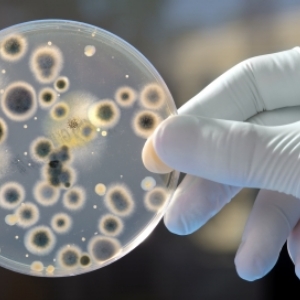
Understanding how and why diversification occurs is important for understanding why there are so many species on Earth. In a new study published in the open access journal PLOS Biology, researchers show that similar—or even identical—mutations can occur during diversification in completely separate populations of E-coli evolving in different environments over more than 1 000 generations. Evolution, therefore, can be surprisingly predictable.
The experiment, conducted by Matthew Herron, research assistant professor at the University of Montana, and Professor Michael Doebeli of the University of British Columbia, involved three different populations of bacteria.
How the study was done
At the start of the experiment, each population consisted of generalists competing for two different sources of dietary carbon (glucose and acetate), but after 1 200 generations they had evolved into two coexisting types each with a specialised physiology adapted to one of the carbon sources. Herron and Doebeli were able to sequence the genomes of populations of bacteria frozen at 16 different points during their evolution, and discovered a surprising amount of similarity in their evolution.
"In all three populations it seems to be more or less the same core set of genes that are causing the two phenotypes that we see," Herron said. "In a few cases, it's even the exact same genetic change."
Recent advances in sequencing technology allowed Herron and Doebeli to sequence large numbers of whole bacterial genomes and provide evidence that there is predictability in evolutionary diversity. Any evolutionary process is some combination of predictable and unpredictable processes with random mutations, but seeing the same genetic changes in different populations showed that selection can be deterministic.
"There are about 4.5 million nucleotides in the E-coli genome," he said. "Finding in four cases that the exact same change had happened independently in different populations was intriguing."
A rare advantage
Herron and Doebeli argue that a particular form of selection—negative frequency dependence—plays an important role in driving diversification. When bacteria are either glucose specialists or acetate specialists, a higher density of one type will mean fewer resources for that type, so bacteria specialising on the alternative resource will be at an advantage.
"We think it's likely that some kind of negative frequency dependence—some kind of rare type advantage—is important in many cases of diversification, especially when there's no geographic isolation," Herron said.
As technology advances, Herron believes that similar experiments in larger organisms will soon be possible. Some examples of diversification without geographic isolation are known in plants and animals, but it remains to be seen whether or not the underlying evolutionary processes are similar to those in bacteria.




 Publications
Publications
 Partners
Partners













